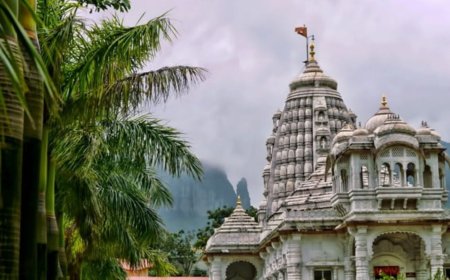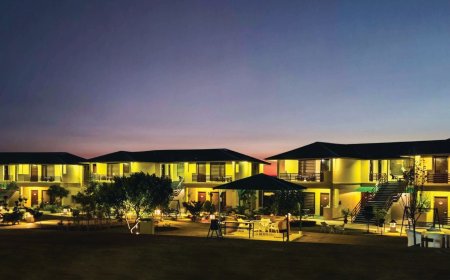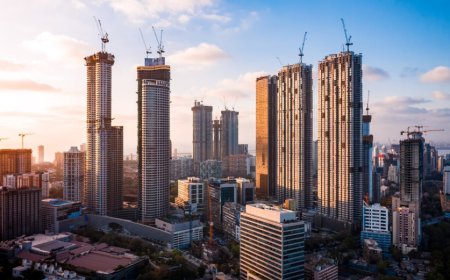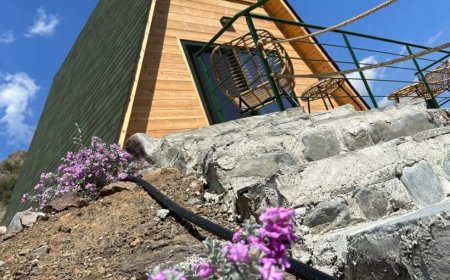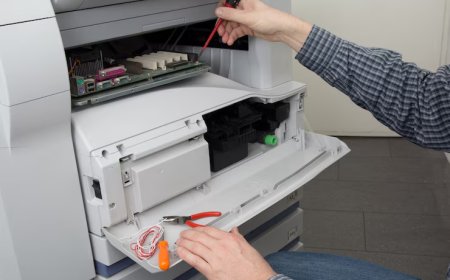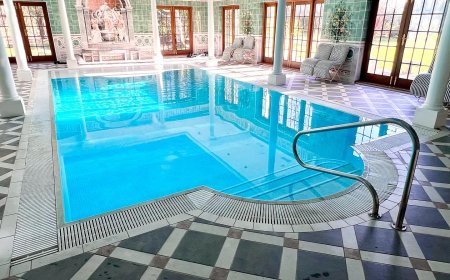How to See Puppet Shows in Columbus Washington
How to See Puppet Shows in Columbus, Washington At first glance, the idea of seeking out puppet shows in Columbus, Washington, might seem unusual—after all, this small rural community in Skamania County is best known for its quiet forests, the Columbia River Gorge, and its proximity to outdoor recreation rather than performing arts venues. Yet, beneath its unassuming surface, Columbus and the surr
How to See Puppet Shows in Columbus, Washington
At first glance, the idea of seeking out puppet shows in Columbus, Washington, might seem unusual—after all, this small rural community in Skamania County is best known for its quiet forests, the Columbia River Gorge, and its proximity to outdoor recreation rather than performing arts venues. Yet, beneath its unassuming surface, Columbus and the surrounding region host a surprising array of intimate, community-driven puppet performances that celebrate storytelling, local culture, and imaginative theater. Whether you’re a parent looking for family-friendly entertainment, a theater enthusiast exploring niche art forms, or a traveler seeking authentic regional experiences, discovering puppet shows in Columbus offers a uniquely heartfelt way to connect with the Pacific Northwest’s creative spirit.
This guide is designed to help you navigate the hidden world of puppet theater in and around Columbus, Washington. Unlike major metropolitan areas with dedicated puppet theaters, Columbus relies on seasonal events, mobile performers, school collaborations, and grassroots arts organizations to bring puppetry to life. Understanding how to find, attend, and appreciate these performances requires more than a simple Google search—it demands awareness of local calendars, community networks, and the cultural context that makes these shows meaningful.
In this comprehensive tutorial, you’ll learn how to locate puppet shows in Columbus, Washington, step by step. We’ll cover best practices for maximizing your experience, essential tools and resources, real examples of past and upcoming performances, and answers to frequently asked questions. By the end, you’ll not only know where to find these shows—you’ll understand why they matter, how they’re made, and how you can support the artists who keep this art form alive in rural America.
Step-by-Step Guide
Finding puppet shows in Columbus, Washington, isn’t as straightforward as checking a city’s event calendar. The performances are often irregular, community-organized, and spread across nearby towns. Follow this step-by-step guide to ensure you never miss an opportunity to experience live puppetry in the region.
Step 1: Understand the Local Puppetry Landscape
Puppet shows in Columbus are not hosted in permanent theaters. Instead, they appear through seasonal festivals, school auditoriums, library events, and pop-up performances at local cafes or community centers. Puppeteers in this area often come from neighboring towns like Stevenson, Cascade Locks, or even Portland, Oregon, bringing their portable stages and handcrafted puppets to rural venues. Recognizing this decentralized model is the first step to successful discovery.
Many performers are independent artists who tour the Pacific Northwest during spring and fall, when weather permits outdoor and indoor gatherings. Others are affiliated with regional arts nonprofits that coordinate outreach programs in underserved communities. Understanding this ecosystem helps you know where and when to look.
Step 2: Monitor Local Event Calendars
The most reliable way to find upcoming puppet shows is by regularly checking community event listings. Start with the following sources:
- Skamania County Tourism Website – While primarily focused on hiking and river activities, their events section occasionally lists cultural performances, including puppetry.
- Columbus Community Center Bulletin Board – Located at 125 River Road, this physical board often features flyers for upcoming shows, especially those hosted by local schools or libraries.
- Stevenson Public Library Calendar – Just 12 miles from Columbus, the Stevenson Library hosts monthly story hours and seasonal puppet performances. Their website updates events weekly.
- Facebook Groups – Search for “Columbus WA Community,” “Columbia River Gorge Events,” and “Pacific Northwest Puppeteers.” These groups are frequently updated by locals and performers alike.
Set up Google Alerts for keywords like “puppet show Columbus WA,” “family theater Skamania County,” or “puppet performance Columbia River.” Even if no shows are scheduled, these alerts will notify you when new events are posted.
Step 3: Contact Local Schools and Libraries
Public schools in the Columbia River Gorge area often partner with touring puppeteers for educational performances aligned with curriculum goals. These events are typically free and open to the public.
Call or email the main office of Columbus Elementary School or Stevenson High School and ask if they have any upcoming arts-in-education programs. Mention your interest in puppetry specifically—staff members are often happy to share schedules with interested families.
Similarly, public libraries in the region frequently host “Story Time with Puppets” during summer reading programs and holiday seasons. The Cascade Locks Library and Carson Library have hosted regional puppet troupes in recent years. Ask about their upcoming cultural programming and request to be added to their mailing list.
Step 4: Attend Seasonal Festivals and Fairs
Many puppet performances in Columbus occur as part of larger community gatherings. Key annual events include:
- Skamania County Fair – Held every August in Stevenson, this fair includes a children’s stage with puppet acts.
- Columbia River Gorge Folk Festival – Typically in late May, this festival features folk storytelling and puppetry from regional artists.
- Winter Lights Celebration – Hosted by the Columbus Community Center in early December, this event often includes a holiday-themed puppet show narrating local legends.
These festivals are not advertised nationally, so rely on local word-of-mouth and social media. Arrive early—seating is limited, and these shows fill up quickly.
Step 5: Join a Puppetry Interest Group
If you’re passionate about puppetry, consider joining or forming a local interest group. The Columbia River Puppetry Circle is a loose network of enthusiasts, educators, and performers who meet monthly via Zoom and occasionally organize pop-up shows. Reach out through the Skamania County Arts Council website to request an invitation.
Even if you don’t perform, being part of this network gives you early access to show announcements, behind-the-scenes workshops, and volunteer opportunities to help set up stages or distribute flyers.
Step 6: Prepare for the Experience
Once you’ve found a show, prepare accordingly:
- Check the venue’s accessibility—many are held in older community centers without elevators or ADA-compliant seating.
- Arrive 15–20 minutes early. Seating is often on a first-come, first-served basis, and children may need space to sit on the floor.
- Bring a light jacket. Many venues are unheated or poorly insulated during shoulder seasons.
- Bring quiet snacks for young children. Some shows last 30–45 minutes and may not allow food inside, but having something ready helps manage attention spans.
- Ask if photography is permitted. Many puppeteers discourage flash photography, as it can distract performers and damage delicate puppet materials.
Step 7: Engage After the Show
One of the most rewarding aspects of attending puppet shows in rural areas is the opportunity to meet the artists. Stay after the performance to thank the puppeteer, ask questions about how the puppets were made, or even try a simple puppet yourself. Many performers are eager to share their craft and may even offer workshops or sell handmade puppets on-site.
Leave a review on Google Maps or Facebook for the venue. Positive feedback helps ensure future performances are booked. If the show was exceptional, consider writing a short letter to the local newspaper or submitting a photo to the county’s arts newsletter.
Best Practices
Attending puppet shows in Columbus, Washington, is more than just showing up—it’s about respecting the art form, the community, and the effort behind each performance. Follow these best practices to ensure your experience is meaningful and supportive.
Respect the Intimacy of the Setting
Puppet shows in this region are often performed in spaces designed for 30–50 people. Unlike large theaters, there’s no backstage, no lighting rig, and no sound system. The performer’s voice, movement, and puppet manipulation are the entire show. Avoid talking during the performance, even in whispers. Turn off all phone notifications. Children should be prepared beforehand to sit quietly and watch closely.
Support the Artists Directly
Most puppeteers in this area operate on minimal budgets. They may not charge admission, but they often have a donation basket or a table selling handmade puppets, books, or postcards. Even a $5 contribution helps cover travel, materials, and time. If you’re moved by the performance, consider buying a small puppet as a keepsake—it’s a tangible way to support the art.
Bring a Friend or Family Member
Puppet shows thrive on shared wonder. Bringing someone else—especially a child—enhances the experience. Many performers tailor their shows to engage both children and adults, weaving in humor, folklore, and subtle messages about nature, kindness, or resilience. Watching together creates a shared memory that lasts far longer than the 30-minute performance.
Learn the Local Folklore
Many puppet shows in the Columbia River Gorge draw inspiration from regional legends—such as the tale of the Wind Spirit of the Gorge, the Water Serpent of the Columbia, or stories of early logging communities. Reading up on local myths before attending a show deepens your appreciation. The Stevenson Historical Society has a small reading corner with books on regional folklore, and many libraries offer free pamphlets.
Be Flexible with Dates and Locations
Shows may be rescheduled due to weather, illness, or low turnout. Always confirm the event 24–48 hours in advance via phone or social media. If a show is canceled, ask if it will be rescheduled or if there’s an alternative performance nearby. Flexibility is key in rural arts programming.
Encourage Local Participation
If you or someone you know has an interest in puppetry, encourage them to get involved. Many performers welcome volunteers to help build puppets, manage lights, or assist with promotions. Even helping to hang a poster at the post office counts. Community support keeps these traditions alive.
Document and Share Responsibly
Take photos or videos only if permitted. When you do, tag the performer or venue and use hashtags like
ColumbusPuppetShow or #GorgePuppetry. Sharing your experience helps raise awareness without disrupting the intimate nature of the performance. Avoid posting clips that show the puppeteer’s face if they prefer anonymity—many traditional puppeteers believe the story matters more than the person behind it.
Tools and Resources
Successfully finding and enjoying puppet shows in Columbus, Washington, requires the right tools and access to trusted resources. Below is a curated list of practical tools, websites, and physical resources that will enhance your journey.
Online Resources
- Skamania County Arts Council – www.skamaniaarts.org – The primary hub for arts programming in the region. Lists upcoming events, funding opportunities, and artist profiles.
- Washington State Arts Commission – www.arts.wa.gov – Offers a searchable database of touring artists, including puppeteers eligible for community grants.
- Puppeteers of America – www.puppeteers.org – National organization with a “Find a Puppeteer” directory. Filter by state and performance type.
- Eventbrite (Regional Search) – Use filters for “Columbus, WA” and keywords like “puppet,” “storytelling,” or “family show.” Many local events are posted here even if they’re not widely advertised.
- Google Maps – Search “puppet theater near Columbus WA.” While no permanent venues exist, results may include community centers, libraries, or schools that host occasional shows.
Physical Resources
- Stevenson Public Library – Offers free puppet-themed storybooks, DVDs of regional performances, and a bulletin board for event flyers.
- Columbus Community Center – Has a small lending library of puppet-making kits and instructional booklets for children and adults.
- Local Bookstores – The Book Nook in Stevenson carries regional children’s books illustrated with puppet-style art. These often tie into upcoming performances.
- Maps of the Columbia River Gorge – Purchase a physical map from the Visitor Center in Cascade Locks. It marks community centers, libraries, and parks where performances frequently occur.
Mobile Apps
- Facebook Events – Set location to “Columbus, WA” and follow pages like “Columbia River Gorge Events” and “Skamania County Happenings.”
- Meetup – Search for “puppetry” or “storytelling” in nearby ZIP codes. There’s an active group called “Gorge Storytellers” that occasionally organizes puppet nights.
- Nextdoor – Hyperlocal app where neighbors post about community events. Many puppet shows are announced here first.
Recommended Reading
To deepen your appreciation, consider these books:
- Puppetry: A World History by E. A. B. B. A. K. (for historical context)
- Stories from the Gorge: Folktales of the Columbia River by Marjorie L. Hargrove (local legends referenced in many shows)
- The Art of the Handmade Puppet by Lena Winters (a guide to puppet construction, useful if you want to try making your own)
These books are available at the Stevenson Library or can be requested via interlibrary loan through the Washington State Library system.
Real Examples
To illustrate how puppet shows manifest in Columbus and the surrounding area, here are three real examples of past performances and what made them memorable.
Example 1: “The Wind Spirit’s Journey” – Columbia River Gorge Folk Festival, May 2023
Performed by Portland-based artist Elena Ruiz, this 40-minute show used shadow puppets and hand-carved wooden figures to tell the story of a spirit who travels the Gorge to calm storms and guide lost travelers. The performance took place under a canopy at the Stevenson Fairgrounds, with natural light filtering through the trees. Ruiz used live sound effects—whistling wind, distant river sounds—and invited children to mimic the wind with scarves during the finale. Attendance: 62 people. Donations: $417. The show was so well-received that it was invited back for the 2024 festival.
Example 2: “Lumberjack Larry and the Talking Axe” – Columbus Elementary School Assembly, October 2022
A collaboration between the school’s art teacher and a retired puppeteer from Vancouver, WA, this show was part of the school’s environmental education unit. The puppet, Larry, was made from repurposed wood scraps and spoke in a thick Pacific Northwest accent. The story taught children about sustainable logging and forest conservation. Each child received a simple paper puppet to take home. The performance was followed by a workshop where students made their own mini-puppets from socks and buttons. Over 120 students attended, and the event was featured in the local paper, The Gorge Gazette.
Example 3: “Winter’s Whisper: A Holiday Puppet Tale” – Columbus Community Center, December 2023
Hosted by the volunteer group “Gorge Tales,” this show retold a lesser-known Native American legend about the first snowfall. The puppets were made by local seniors using felt, yarn, and dried corn husks. The show ended with a candlelit sing-along of a traditional winter song. Families brought thermoses of hot cocoa. No tickets were sold; donations went to buy new puppet materials for next year’s show. One attendee wrote in the guestbook: “I haven’t felt this peaceful in years. It wasn’t just a show—it was a hug for the soul.”
These examples show that puppet shows in Columbus aren’t about spectacle—they’re about connection. They’re rooted in place, made by hand, and shared with quiet generosity.
FAQs
Are there any permanent puppet theaters in Columbus, Washington?
No, there are no dedicated puppet theaters in Columbus. All performances are temporary, hosted in community centers, schools, libraries, or outdoor venues. This is part of what makes them special—they’re ephemeral, intimate, and deeply tied to the community that invites them.
Do I need to pay to attend a puppet show?
Most shows are free or operate on a donation basis. Some may request a small contribution (typically $5–$10 per person) to cover materials or travel costs. Never feel pressured to pay—your presence and attention are the most valuable contributions.
Are puppet shows appropriate for toddlers and infants?
Yes, many shows are designed for children ages 2 and up. However, the space may be crowded, and the volume can vary. If you’re bringing a very young child, consider bringing noise-canceling headphones or a favorite toy to help them stay calm. Performers often welcome babies in carriers.
Can I bring my own puppet to a show?
Yes, if the event is family-friendly and the performer encourages participation. Some shows include a “show-and-tell” segment where children can share their puppets. Always ask beforehand to ensure it fits the program.
How can I become a puppeteer in Columbus?
Start by attending shows and asking performers about workshops. The Skamania County Arts Council occasionally offers free puppet-making classes. You can also join the Columbia River Puppetry Circle. Many local artists are happy to mentor newcomers—especially if you’re willing to help build puppets or assist with events.
Do puppeteers perform in the winter?
Yes, especially around the holidays. Winter shows are often themed around light, quiet, and folklore. The Columbus Community Center hosts a holiday puppet show every December. Outdoor performances are rare in winter, but indoor venues remain active.
What if I can’t find a show near me?
Consider organizing one. Contact your local library or school and propose a puppet show as part of their arts programming. Provide them with contact information for regional puppeteers via the Puppeteers of America directory. Often, all it takes is one interested organizer to make it happen.
Are puppet shows in Columbus culturally significant?
Absolutely. Puppetry in this region draws from Indigenous storytelling traditions, early settler folklore, and the quiet resilience of rural life. These shows preserve oral histories, teach environmental values, and offer emotional comfort in areas with limited cultural access. They’re not entertainment—they’re cultural preservation.
Conclusion
Seeing a puppet show in Columbus, Washington, is not just an outing—it’s an act of quiet rebellion against the noise and speed of modern life. In a place where the river still runs wild and the trees whisper with old stories, puppetry offers a return to simplicity, imagination, and human connection. These performances are not advertised on billboards or streamed online. They are whispered about in coffee shops, pinned to library bulletin boards, and shared between neighbors who know that wonder still lives in small places.
By following this guide, you’ve learned how to find these hidden gems, how to honor the artists who create them, and how to become part of a living tradition that thrives not because of funding or fame, but because of love—for storytelling, for community, for the handmade.
So the next time you hear a rumor of a puppet show in the Gorge—whether it’s at the library, the fairgrounds, or a school auditorium—go. Bring your curiosity. Bring your silence. Bring your heart. And when the lights dim and the first puppet steps onto the stage, remember: you’re not just watching a show. You’re witnessing a piece of the soul of Columbus, Washington.






